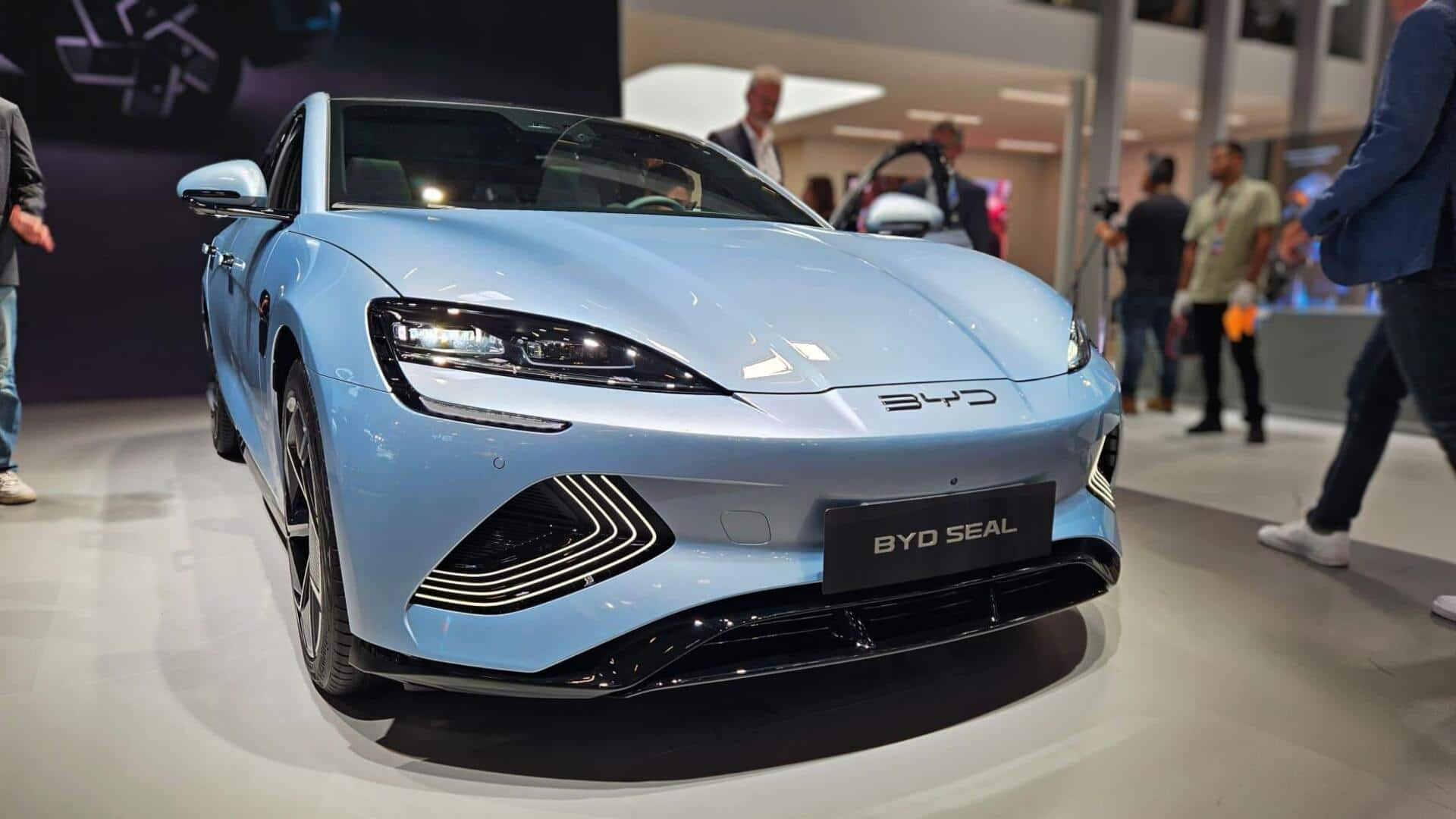
BYD's revenue surpasses Tesla for first time amid EV competition
What's the story
Chinese automaker BYD has posted a quarterly revenue that exceeded Tesla's for the first time, a major milestone in the global electric vehicle (EV) market. Though missing estimates, BYD's revenue grew 24% to CNY 201.1 billion ($28.2 billion) in Q3 2024, beating Tesla's sales of $25.2 billion in the same quarter. The development highlights an intensifying rivalry between the two EV giants globally.
Financial growth
Net income and sales performance
BYD also posted net income growth of 11.5% to a record CNY 11.6 billion, beating estimates. The financial growth was driven by the sale of an all-time high 1.12 million electric and plug-in hybrid vehicles, which brought in a gross margin of 21.9%. However, Tesla still tops the profit chart with earnings of $2.2 billion for the same period. In the first nine months, BYD's net income stood at CNY 25.2 billion on revenue of CNY 502.3 billion ($70 billion).
Market impact
BYD and Tesla: Leading threats to traditional automakers
BYD and Tesla have become major threats to legacy automakers such as Volkswagen AG, Ford Motor Co., Stellantis NV, and General Motors Co. These companies are struggling with their EV transition. Even as consumer demand for fully electric cars slows, BYD's strong portfolio of hybrid vehicles has given it an edge over Tesla.
Strategic edge
BYD's hybrid vehicles and supply chain advantages
Hybrid vehicles have played a major role in BYD's revenue surge. Some models come with improved powertrains that promise over 2,000km of range. Plus, BYD's vertically integrated supply chain — making more parts in-house — gives it cost and scale advantages, allowing it to produce cars at a lower cost. Tesla, on the other hand, is still working on ramping up production of its Cybertruck and expanding the usage of its partial-automation system, branded as Full Self-Driving.
Market dynamics
Benefiting from domestic demand and government subsidies
BYD has also benefited from a revival in domestic demand in China, driven by improved national and local government subsidies incentivizing consumers to switch from ICE cars to EVs and hybrids. These local sales have helped shield BYD from foreign pushback against Chinese carmakers' growth. Even as the European Union imposed higher tariffs on EVs from China this week, BYD's earnings outlook for the last quarter looks solid, given its top sales position in China, the world's largest car market.